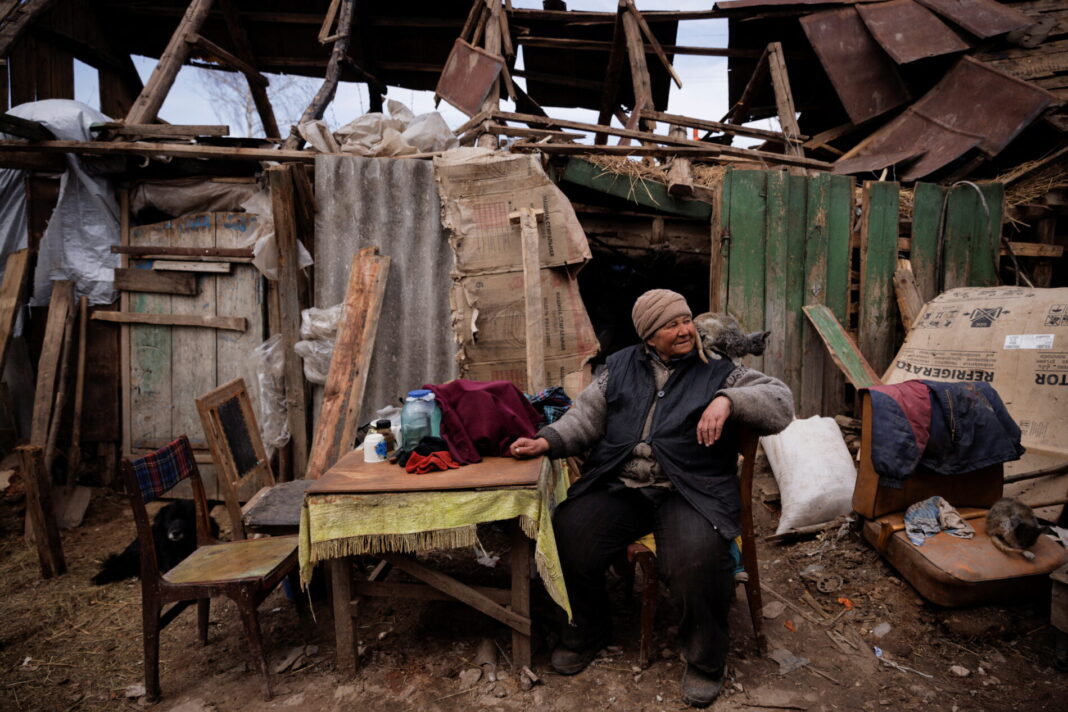With the war in Ukraine, most ports have been closed, seriously affecting exports. Millions of tons of wheat and corn are waiting to be shipped all over the world. 44 milion people are at risk of famine, the World Food Programme warns
The war between Russia and Ukraine is being fought on the vast plains that separate the two countries. Precisely on those territories dedicated to the agriculture of wheat, of which Kiev is one of the world’s largest exporters. However, the military war has also moved to the sea, to the ports, sensitive targets and therefore among the first places to be bombed. There, raw materials are usually embarked for distribution all over the world. However, from the Ukrainian coast, ships have not been sailing now since 24 February. Closed ports prevent raw materials from leaving the Black Sea. There is no way out by sea, from Mariupol to Chornomorsk and Odessa, the country’s largest port, which in 2021 saw 675,000 TEUs (the standard units of maritime transport) pass through.
The blockade of most Ukrainian Black Sea ports has serious consequences for the supply of grain and other raw materials to other parts of the world. The situation is particularly serious in Odessa, the largest and most important Ukrainian port on the Black Sea, where it is estimated that millions of tons of wheat and maize are crammed in, waiting to be shipped all over the world. As announced a few days ago by David Beasley, Executive Director of the World Food Programme (WFP), the risk is a global famine, with an even more disastrous impact in countries already experiencing a serious humanitarian crisis. To give an idea of the consequences, it is sufficient to say that in the eight months before the war began, the more than 50 million tons of grain transited through these ports served to feed some 400 million people. While the grain silos remain full, 44 million people globally are heading for starvation, with the largest increase in this figure in sub-Saharan Africa, according to the WFP.
Among the most immediate and tangible consequences caused by the war and the port blockade is the rise in food commodity prices well above the record levels reached earlier this year. In March, export prices for wheat and maize rose by 22% and 20% respectively, on top of the sharp increases in 2021 and early 2022. A situation that affects all countries, and it is to be added to the fact that these world supplies were already suffering due to the drought that affected wheat production in North America. Among the states most affected by the price increase are certainly those in the MENA region, such as Lebanon, Egypt and Syria, which are highly dependent on foreign exports of this commodity at affordable prices. However, European livestock farmers are also highly dependent on Ukraine for maize and other additives for animal feed.
This situation also threatens humanitarian aid. According to the WFP, soaring food and fuel prices have increased operational costs by up to USD 71 million per month, a sum equivalent to providing a daily ration to almost four million people for a month. This compromises the ability of the UN agency and others in the field to respond to hunger crises around the world. The situation becomes even more dramatic if we consider that some of the intervention areas are already affected by famine, such as Afghanistan, Yemen and Ethiopia.
Not only humanitarian organisations are denouncing this situation, but also some leaders. First of all, Ukrainian President Volodymyr Zelensky, who described the dramatic situation of the country’s ports, comparing the blockade of Odessa to the same situation experienced during the Second World War, when no ships transited through the port. From European leaders, one of the latest appeals was from Charles Michel, President of the European Council, during his visit to Odessa, who called for a global response to this dramatic situation. However, it remains to be seen when and how the materials in the silos will be released to avoid a famine with disastrous results. Some sources are talking about a secret negotiation between Russian and Ukrainian generals to contain the war, where the first test could be precisely the unblocking of the grain stored in Odessa.
The blockade of most Ukrainian Black Sea ports has serious consequences for the supply of grain and other raw materials to other parts of the world. The situation is particularly serious in Odessa, the largest and most important Ukrainian port on the Black Sea, where it is estimated that millions of tons of wheat and maize are crammed in, waiting to be shipped all over the world. As announced a few days ago by David Beasley, Executive Director of the World Food Programme (WFP), the risk is a global famine, with an even more disastrous impact in countries already experiencing a serious humanitarian crisis. To give an idea of the consequences, it is sufficient to say that in the eight months before the war began, the more than 50 million tons of grain transited through these ports served to feed some 400 million people. While the grain silos remain full, 44 million people globally are heading for starvation, with the largest increase in this figure in sub-Saharan Africa, according to the WFP.





